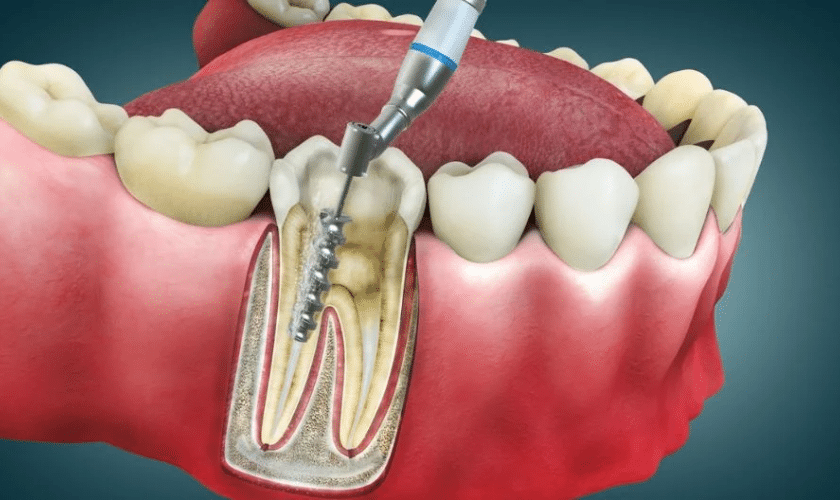7 Common Signs You Need a Root Canal

Have you ever experienced a persistent toothache that just won’t quit? Or perhaps you’ve noticed increased sensitivity to hot and cold foods? These could be subtle hints from your teeth that something more serious is brewing beneath the surface – a potential need for a root canal.
Root canals, despite their intimidating reputation, are essential dental procedures designed to save damaged or infected teeth. However, recognizing the signs that indicate you might need one is crucial for timely intervention and preventing further complications.
In this comprehensive guide, we’ll delve into seven common signs that could signal the need for a root canal. From throbbing pain to gum swelling, we’ll explore each symptom in detail, empowering you to take proactive steps toward optimal dental health.
1. Persistent Pain
One of the most telltale signs that you may need a root canal is persistent or throbbing tooth pain. This pain can vary in intensity, from mild discomfort to excruciating agony, and may worsen when biting or applying pressure to the affected tooth. It often lingers long after the stimulus is removed, indicating an underlying issue within the tooth’s pulp.
2. Sensitivity to Temperature
Do you wince in pain when sipping on hot coffee or enjoying a scoop of ice cream? Increased sensitivity to temperature extremes, such as hot or cold foods and beverages, could be a red flag for a compromised tooth nerve. This heightened sensitivity occurs as the nerve becomes inflamed or infected, triggering discomfort in response to temperature changes.
3. Swollen Gums
Swollen, tender gums surrounding a specific tooth can indicate infection or inflammation within the tooth’s root canal system. As bacteria multiply and spread, the body’s immune response kicks in, leading to localized swelling and redness. In some cases, you may even notice a small, pimple-like bump on the gum, known as a dental abscess, which requires immediate dental attention.
4. Discoloration of the Tooth
Have you noticed a darkening or discoloration of a single tooth? This change in tooth coloration can occur as a result of internal damage or decay affecting the tooth’s pulp. When blood vessels within the pulp break down, they can impart a grayish or dark hue to the tooth, signaling the need for prompt evaluation by a dentist.
5. Persistent Bad Breath
While occasional bad breath is normal, persistent halitosis despite proper oral hygiene practices could indicate an underlying dental issue, such as a root canal infection. As bacteria multiply within the infected tooth, they release foul-smelling byproducts that contribute to chronic bad breath. Addressing the underlying infection through a root canal procedure can help alleviate this unpleasant symptom.
6. Prolonged Tooth Mobility
Healthy teeth should feel stable and secure within their sockets. However, if you notice increased mobility or looseness in a specific tooth, it could signal advanced dental decay or damage to the tooth’s supporting structures. A root canal may be necessary to address the underlying issue and stabilize the affected tooth, preventing further mobility or loss.
7. Formation of Dental Abscess
A dental abscess is a pocket of pus that forms at the root of an infected tooth, typically as a result of untreated dental decay or trauma. In addition to swollen gums and localized tenderness, you may experience intense throbbing pain and facial swelling. Left untreated, a dental abscess can lead to serious complications, such as bone loss or systemic infection, emphasizing the importance of prompt dental intervention.
Empowering Dental Health Through Awareness
In the realm of dental health, early detection and intervention can make all the difference in preserving your natural smile. By familiarizing yourself with the seven common signs that may indicate the need for a root canal, you can take proactive steps to safeguard your oral health and prevent serious complications down the road.
Remember, if you experience any of these symptoms, don’t delay seeking professional dental care. Your dentist can conduct a thorough evaluation, determine the underlying cause of your symptoms, and recommend appropriate treatment, which may include a root canal procedure to save your tooth and alleviate your discomfort.
Ultimately, prioritizing regular dental check-ups and maintaining good oral hygiene practices are key pillars of preventive dental care. By staying proactive and attentive to your oral health needs, you can enjoy a lifetime of healthy smiles and pain-free living.
So, listen to the whispers of your teeth and heed the signs – your smile depends on it!
Recent Posts

How Age Impacts Your Cosmetic Dentistry Options

What Happens If You Ignore a Broken or Cracked Tooth?

Can Teens Get Invisalign? What Parents Should Know

What is the Fastest Way to Whiten Teeth Before a Wedding in Havertown?


